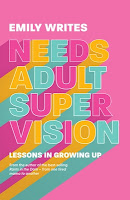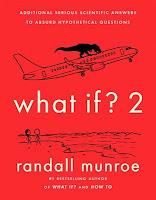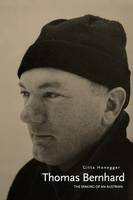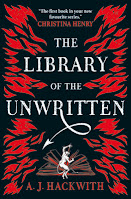|
Ducks, Newburyport by Lucy Ellmann {Reviewed by THOMAS}
The fact that the wind is now making the branches scrape against the wall of the house as he sits down to write, though at least they only scrape when the wind blows, he thinks, and even when the wind blows it blows in gusts, so the scraping is not constant, not that it’s any less irritating, he thinks, the fact that this irritation is preventing him from starting to write, the fact that here he is, starting to write his review at the end of the day, despite what he just said, at what is almost the end of the day, at the end of the week, and such a week, the fact there is therefore a deadline of sorts to the completion of his review, the fact that he has not even started to write his review, despite what he just said, the fact that he would prefer to finish reading his book than write his review of the book, the fact that he is enjoying the book, very much, while he is reading it, but if he enjoys reviewing the book the enjoyment will only come when the writing is completed, which seems hardly fair, the fact that the book he is reading and enjoying is over one thousand pages long and is floppy and unwieldy like a paperback dictionary, which seems somehow appropriate, both in that it is floppy and unwieldy, in that it is about the floppiness and unwieldiness of being alive, as a human, in the twenty-first century, conscious and at the mercy of thought, and also in that the book is, in a way, similar to a dictionary in that it could make a fairly good claim to being an exhaustive catalogue of the miseries of consciousness, which is a sort of language, or a field in any case defined by language, the fact that the book is very funny, funny and painful, he thinks, just like consciousness, the fact that nobody should ever publish a paperback dictionary, unless it is a dictionary for incurious people, and there could be a market for that, he thinks, otherwise paperback dictionaries are insufficiently robust to be used more than a very few times, the fact that the floppiness and the unwieldiness of Ducks, Newburyport, the novel by Lucy Ellmann that he is going to review, seem somehow appropriate qualities for this novel of over one thousand pages, being slightly irritating but also in a way comedic and intriguing, just like life in the twenty-first century, the book’s ostensible subject, the fact that Ellmann is “the Proust of modern afflictions”, which quote he made up himself and disposed in speech marks to give it authority, perhaps that should have a capital M, he thinks, that fact that Modernism is a project to undo, or outdo, the strictures of form in order to make literature more resemble thought, the fact that Lucy Ellmann has made her novel resemble thought to the extent that it is both terrifying and compulsive, the fact that thought pops up all over the place, the fact that thought resurges, that is not a good word, he thinks, the fact that we are besieged at all times by thought, the fact that we are submerged in thought at all times, thought from outside our heads, both absolutely us and not us really at all, the fact that we are trying to keep our heads up, above the thoughts, but we can’t, the fact that we think to avoid thinking, the fact that wherever we look there’s a thought, the fact that, if he has to compare Ducks, Newburyport with something, it would be with an itch, as in when you ask yourself, Do I have an itch, then, invariably, you have an itch somewhere, perhaps on your elbow, or at the back of your neck, or an itch on your back, and, if you ask yourself, Do I have another itch, then you have another, and soon, as you know, you will have an itch anywhere you think about, you have itches everywhere, you are one great itch, well Ducks, Newburyport is like that, he thinks, a woman is assailed by her thoughts, she is at the mercy of her thoughts, the thoughts she produces, or, rather, the thoughts that assail her, for, he thinks, obsession is the state of being at the mercy of your own proclivities, the fact that Ducks, Newburyport is written as an endless stream of everything that annoys, or itches, or stimulates, or pains, same thing, a mind in this world, it is, he thinks, a catalogue of thoughts and the thoughts that get in the way of thought, for, he thinks, we all think to avoid thought, we’ve been there before, but, he thinks, not really a catalogue, the opposite of a catalogue, whatever the word for that is, a mishmash perhaps, now there’s a good Yiddish word, a mishmash of thought, linearly recorded, how else, the fact that Ducks, Newburyport is largely a one-thousand-page sentence, no, more than a one-thousand-page sentence, Ducks, Newburyport is a one-thousand-page list, the fact that he had always liked lists, in literature at least, the fact that he had at one time made a list of his favourite lists in literature, though he has lost this, the fact that the one-thousand-page list in Ducks, Newburyport, the one-thousand-page list that is Ducks, Newburyport, except for a short intercut story, told in sentences, about a mountain lion searching for her cubs, told from the mountain lion’s point of view, from a point of bafflement and disgust at humans and their world, which is pretty much an appropriate conclusion, judging from the rest of the text, which is told from a human’s point of view, the fact that the one-thousand-page list that comprises (most of) Ducks Newburyport, uses the phrase “the fact that” to separate its entries, or, rather, to introduce its entries, or, shall we say, to structure its entries, the fact that he finds the fact that the author uses “the fact that” to structure a novel, or a list, if the two forms can be separated, who cares, to structure a novel about living, about striving to live, rather, in a so-called post-factual world, the fact that this post-factual world is overwhelmed with information but short on truth, whatever that is, he thinks, this is the world in which we are all immersed, you’re soaking in it, a meme predating memes, it’s all memes, way back to the beginning of time, that fact that he decided he could write like this, too, in fact it became, as he read Ducks, Newburyport, more and more difficult not to write this way, in a list, like thought, he thinks, the fact that the more he writes in this way, the easier it becomes, and soon, he thinks, the difficulty will not be in writing but in stopping writing, the fact that he might not be able to stop, at least until he has written at least one thousand pages, which would be a remarkable application of method, apart from the fact that Lucy Ellmann has already written one thousand pages in this way, at whatever cost to herself, and to her family, and to her sanity, she had done it, so his achievement in writing his one thousand pages would be a fairly useless and unimpressive achievement, unimpressive on the literary front even if it might remain impressive on the insanity front, the fact that it would still be impressive for its cost to himself, and to his family, and to his sanity, impressive in a negative sense but not impressive in a positive sense, the fact that Lucy Ellmann has already, rightly, appropriated all the benefit from such an enterprise, the fact that Lucy Ellmann was short-listed for the Booker Prize for her one-thousand-page sentence, whereas he would have achieved nothing but the limits of his sanity, the fact that Lucy Ellmann may have achieved the limits of her sanity, though she has nerves of steel, he thinks, and may not even have neared the limits of her sanity, although the book might not have been so good if she had not, the fact that he does not have nerves of steel, he has nerves of tin, the fact that he would soon achieve the limits of his sanity, if he has not already achieved them, the fact that a one-thousand-page review of a one-thousand-page novel would not get him shortlisted for the Booker Prize, or even short-listed for even one person’s attention, the fact that he did not deserve even one person’s attention, the fact that Lucy Ellmann has already appropriated all the available attention for writing in this way, even if this is less attention than she deserves for writing in this way, the fact that she has written an outstanding one-thousand-page novel about human consciousness in the twenty-first century, but that, if he completes his one-thousand-page review of this novel he will be acclaimed as nothing more than a nuisance, if he is acclaimed anything at all, which is unlikely, the fact that benefit is finite but, it seems, detriment is infinite, the fact that negative consequences are inexhaustible, whereas positive consequences are soon exhausted, the fact that Lucy Ellmann’s project is forensic, though forensic about a crime that is infinitely dispersed in both its origins and consequences, the fact that this novel is not only about a woman's life, it is a woman’s life, but not her life only, the fact that a mountain lion’s life has clarity whereas a human life is without clarity, or so it seems, there are too many thoughts, and where do they come from, he thinks, the fact that reading Ducks Newburyport has made him aware of his thoughts, all his thoughts, including the thoughts he represses because they get in the way of his thinking, the fact that, now that he is aware of the mishmash of his thoughts, to use the technical term, his brain will just keep coming up with thoughts, make it stop, a list of thoughts, like in Ducks, Newburyport, structured by the phrase “the fact that”, even at times, such as when he is in the shower, or driving, when it is impossible to record these thoughts, the fact that these thoughts are lost but that the thoughts that arise from these thoughts keep arising, the fact that they show no sign of abating, the fact that this frightens him, at least a little, the fact that there will always be more thoughts is a thought that he finds horrible, the fact that all these thoughts are pushing at him, crowded at the edge of his awareness, waiting their turn, this is a horrible thought, he thinks, the fact that he needs to stop writing before it becomes impossible to stop writing, which has occurred to him before, the fact that he has, in any case, run out of time, there's a deadline after all, and whatever he's written must pass for a review, he'll call it a review, the fact that although he cannot bear to carry on, neither does he want to stop.
|

























































































-575f5a59fae756755c70e16a3f1db7f4.jpg)






